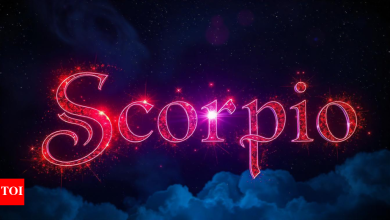Fact Check: How reliable is the Russian Fact-Czech site GFCN?

In early April, Russia’s Foreign Ministry unveiled Global fact-checking network (GFCN)-A self-declared international alliance of fact-cakers and media outlets.The initiative was first presented in November 2024 in the “Dialogue About Fake 2.0” Forum in Moscow. In a press briefing following the April announcement, Russian Foreign Ministry spokesman Maria Zakharova implicated GFCN as a counter, which he attacked the West’s “Relenders Stream and disintegrated campaigns of” fake stories “.,“This global citizen initiative,” Zakharova said, “We will be able to combat devastating Western functions using our own creative agenda.”But fact-checking sites such as Fact and Maldita have raised red flags on GFCN’s Kremlin-Non-Holiday Backers, opaque operations and excessively-ecstasy stories.The DW Fact Czech keeps a close eye.
Who is behind GFCN?
GFCN was co-established by Tass, Russia’s state-run news agency, and autonomous non-profit organization ANO dialogues-are known for their close ties for Kremlin.TASS was suspended in 2022 by the European Alliance of News Agencies (EANA) over concerns about their editorial freedom. In 2023, the European Union approved its role for spreading the ANO dialogue disintegration and the operation of the Pro-Cremlin website on Fake.Beyond Russia’s 2024 presidential election, the US Treasury also approved the group under the Executive Order 14024, which targets individuals and institutions associated with the Russian government.
Does GFCN meet Global Fact-checking standards ,
Independent fact-zancha depends on transparency, verification of source and open functioning.Leading outfits such as the International Fact-Zone Network (IFCN) require facts and locals to cite public data and provide transparent methods that may repeat others.DW reviewed several GFCN articles and found frequent problems with sourcing and functioning.“The Romanian election: How did The West win only the second attempt?” In an article titled, the author cited 2024 eurobarometer, claiming that only 22 percent of Romanians provide assistance to refugees, only 14 percent of the European Union action on Ukraine, and only 13% of Ukraine’s European Union candidate is positioned.But these figures are false. DW cross-check the data and found a high level of Romanian support for European Union policies on Ukraine in 2024 Eurobarometer, refuting the main claim of the article.Another piece alleged that the “shadow organizer” was behind the Soros family “Stay away!” Protests against US President Donald Trump’s second administration, which took place on 5 April 2025 in the United States. The article argued that, since some organizers had earlier received the grant from the foundation of the Open Society, the Soros family would have orkstreting the protest.this is confusing. The piece is narrowly focused on two groups – Moveon and Indivisible – and ignore the wide alliance behind the rallies. While both organizations have actually received funds from the foundation of the open society, the grant has supported general programming, not especially in protest of April 5. In addition, these groups list dozens of funds, not just a soros-supported foundation.Getting support from the foundation of the Open Society does not prove direct participation from the Soros family, whose philanthropic work has long been targeted by the theorists of the conspiracy. These stories often paint Soros as a puppet master behind protest, migration, or global disturbance – the claims that have been widely maligned.“Patipel Pron to Russian Propaganda?” The seriously fails to engage with that question. Instead, it defends most of its word count and attacks a Norwegian media outlet that questioned the credibility of the Russian agency.The article recently mentions the investigation – a report of the newsgard, which DW covered – which Russian attempted to manipulate generative AI platforms. The only conclusion of the piece appears in the final paragraph, which vaguely states: “It is wrong to give the chatbot to give human qualities and others to ‘like’ one of the sources.”
GFCN: Who is writing these stories?
An contributor in GFCN is Sonja Van Dane Ende, a Dutch journalist living in Russia, embedded with Russian soldiers in Ukraine. Some Dutch media described him as a theorist of a conspiracy. On X, he recently posted: “Germany is a country of knives, used to be a country of beer and brutorst, now shelters seekers, ie Radical rebels from Syria, Iraq etc. “Other GFCN contributors include Tim Anderson, directors of the Center for Counter Hegmonic Studies. He has called the massacre of Ukrainian citizens in Bucha a “scam” and claimed that the Russian invasion in Ukraine did not include the goal of civil infrastructure.
A familiar Russian playbook: copying and confused:
Observers say GFCN’s name – just one letter removed from IFCN – is not an accident.The International Fact-Zone Network established by The Pointer Institute in 2015, is a respected union of more than 150 independent facts worldwide. It trains journalists, applies professional standards, and proves outlets on the basis of transparency and editorial freedom.On the other hand, GFCN follows a long -standing strategy of the Russian state: mimicking legitimate institutions to blur the line between journalism and publicity. “We do not consider their activities within the professional facts-zoology ecosystem,” IFCN director Angie Drobic Hollen said, “Citing the frequent repression of independent journalism of Russia.“Professional facts require the ability to verify the claims independently in the political spectrum,” she said. “Journalists must be free to publish the conclusions that refute the government. We are highly suspicious that this effort allows it for it.”Tomaso Kineta, a policy officer of the European Digital Media Observatory (EDMO), called GFCN a classic case of political appropriation.“This is a strategy we have seen many times, co-cum-suit with credibility, such as ‘fact-checking,’ and separating them from the meaning,” he explained. “Political actors often label biased narratives as ‘fact checks’ when they are not clearly.”He insisted that IFCN or European fact-tails help with a network such as the standard network (EFCSN) helps to separate legitimate outlets from people engaged in manipulation.“Without such standards, we end up with the initiative – such as from Russia – which pollutes the word and scavenges the water.”




